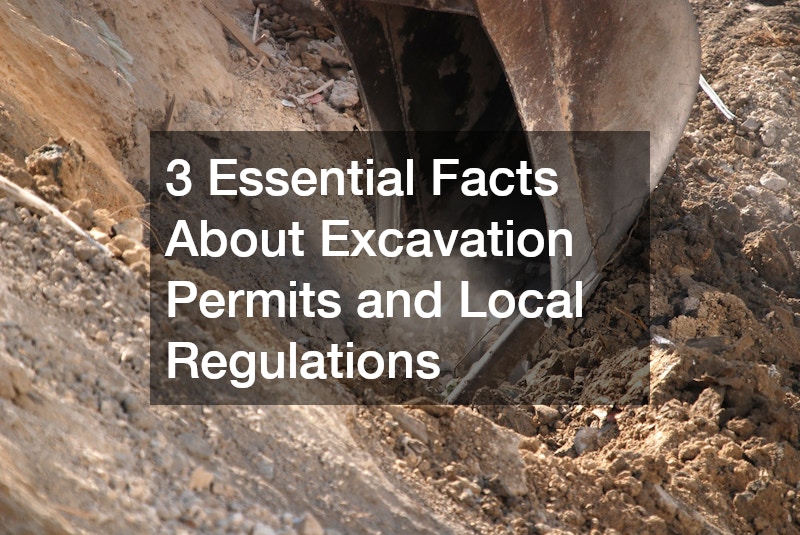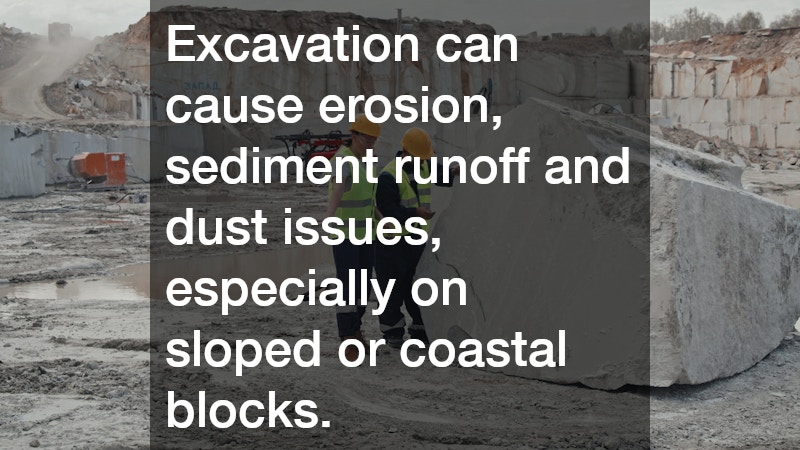
Excavation is often the first physical step in any major construction or development project, but it comes with a range of legal and regulatory responsibilities. Before any digging begins, it’s essential to understand how excavation permits and local regulations apply to your specific job site.
Failing to comply can lead to serious penalties, delays or even legal action.
From small residential works to large-scale infrastructure, excavation must be properly managed according to Australian standards and council laws. Whether you’re a contractor, developer or property owner, being aware of the regulatory landscape ensures smoother project delivery.
Here are three essential facts to help you navigate the excavation process with confidence and avoid unnecessary setbacks.
You May Need a Permit Before Breaking Ground
One of the most important facts about excavation is that you may need formal approval from your local council or government body before any soil is disturbed. Permit requirements vary by state, council and the nature of the work, so there is no one-size-fits-all rule. However, most urban and suburban projects involving earthworks, trenching or site clearing do require prior consent.
In many cases, the type of development you’re planning will determine the kind of approval needed. If you’re excavating as part of building a new home, your building permit will often include excavation consent. But standalone excavation work—such as land reshaping, pool digging or retaining wall installation—often requires a separate excavation permit.
Councils also assess how excavation may impact existing infrastructure, such as stormwater systems, tree roots, neighbouring properties and heritage-listed sites. If your project affects any of these, additional conditions may apply or your permit may be denied until you revise your plans.
Applying for a permit typically involves submitting site plans, project details and a risk assessment. In some cases, you may also need to notify nearby residents or provide an environmental impact statement. Starting without a permit can result in fines, stop-work orders and legal disputes, which can delay your project indefinitely.
Dial Before You Dig is a Legal Requirement
Another critical fact about excavation in Australia is the legal requirement to locate underground utilities before beginning any digging. This is done through the national Dial Before You Dig service, which is now known as Before You Dig Australia.
This free service provides details of gas lines, water pipes, electrical cables, telecommunications and sewer infrastructure that may be buried on your site. Ignoring this step can result in dangerous and costly damage to essential services. If you hit a gas line or fibre optic cable, you could be liable for thousands of dollars in repairs and face legal action or project shutdowns.
It is a legal obligation for anyone planning to excavate to consult Before You Dig Australia and obtain the relevant utility maps. In some states, failing to do so may result in heavy fines or loss of licence for contractors. It’s also your responsibility to interpret these maps correctly and use appropriate tools and methods to verify utility locations before starting excavation.
In many commercial contracts, proof of utility checks is required before work can proceed. Professional excavation contractors are usually familiar with this process and include it as part of their standard pre-site assessments.
Environmental and Safety Regulations Must Be Followed
Excavation work is not just about moving soil. It involves risks to the environment, public safety and workers. That’s why strict safety and environmental regulations are enforced at both state and local levels. Knowing your obligations before work begins will help avoid costly non-compliance penalties and ensure your site remains safe and operational.
Excavation can cause erosion, sediment runoff and dust issues, especially on sloped or coastal blocks. Most councils require an erosion and sediment control plan as part of your permit application. You may need to install barriers, soil coverings or temporary drainage systems to protect surrounding land and water bodies.
Noise and working hour restrictions are also in place across most local government areas. If your site is near schools, parks or residential areas, your excavation work must meet noise limits and only be conducted during approved hours. Breaching these conditions can result in complaints, inspections and stop orders.
From a safety perspective, trenching and deep excavations must be stabilised to prevent collapse. Depending on the depth and method of excavation, you may need to install shoring, benching or barriers. In commercial projects, Work Health and Safety (WHS) regulations apply, requiring site inductions, personal protective equipment and risk assessments before workers enter any excavation zone.
If asbestos, contaminated soil or archaeological materials are discovered, work must stop immediately, and relevant authorities must be notified. Ignoring this could lead to severe fines and health risks.
Excavation may seem straightforward, but it involves more planning and regulation than many people expect. Understanding when permits are needed, using services like Before You Dig Australia and complying with safety and environmental laws will save you from serious problems down the track.
Whether you’re a property developer preparing for large-scale infrastructure or a homeowner planning a new driveway, these regulations exist to protect the community and the environment. Taking the time to prepare properly not only avoids delays and penalties but also helps deliver a smoother and more professional project outcome.
When in doubt, consult your local council or work with a licensed excavation contractor who is familiar with the legal requirements in your area. That way, you can focus on getting the job done while staying compliant at every stage.



